Kia EV3 vs Toyota bZ4X - Differences and prices compared
Compare performance (204 HP vs 343 HP), boot space and price (30800 £ vs 36800 £ ) at a glance. Find out which car is the better choice for you – Kia EV3 or Toyota bZ4X?
Costs and Efficiency:
Price and efficiency are key factors when choosing a car – and this is often where the real differences emerge.
Kia EV3 has a to a small extent advantage in terms of price – it starts at 30800 £ , while the Toyota bZ4X costs 36800 £ . That’s a price difference of around 6000 £.
In terms of energy consumption, the advantage goes to the Toyota bZ4X: with 13.50 kWh per 100 km, it’s to a small extent more efficient than the Kia EV3 with 14.90 kWh. That’s a difference of about 1.40 kWh.
As for electric range, the Kia EV3 performs minimal better – achieving up to 605 km, about 37 km more than the Toyota bZ4X.
Engine and Performance:
Power, torque and acceleration say a lot about how a car feels on the road. This is where you see which model delivers more driving dynamics.
When it comes to engine power, the Toyota bZ4X has a clearly edge – offering 343 HP compared to 204 HP. That’s roughly 139 HP more horsepower.
In acceleration from 0 to 100 km/h, the Toyota bZ4X is clearly quicker – completing the sprint in 5.10 s, while the Kia EV3 takes 7.50 s. That’s about 2.40 s faster.
In terms of top speed, the Kia EV3 performs minimal better – reaching 170 km/h, while the Toyota bZ4X tops out at 160 km/h. The difference is around 10 km/h.
There’s also a difference in torque: Toyota bZ4X pulls a bit stronger with 338 Nm compared to 283 Nm. That’s about 55 Nm difference.
Space and Everyday Use:
Cabin size, boot volume and payload all play a role in everyday practicality. Here, comfort and flexibility make the difference.
Both vehicles offer seating for 5 people.
In curb weight, Kia EV3 is somewhat lighter – 1800 kg compared to 2014 kg. The difference is around 214 kg.
In terms of boot space, the Kia EV3 offers minimal more room – 460 L compared to 452 L. That’s a difference of about 8 L.
When it comes to payload, Kia EV3 barely noticeable takes the win – 470 kg compared to 451 kg. That’s a difference of about 19 kg.
Who wins the race?
The Toyota bZ4X proves to be leaves the rival little chance and therefore becomes our DriveDuel Champion!
Toyota bZ4X is the better all-rounder in this comparison.
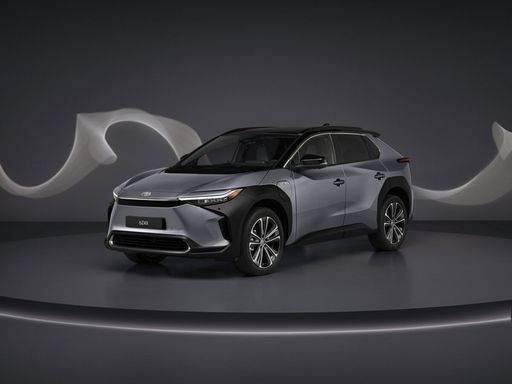
Toyota bZ4X
Costs and Consumption
View detailed analysis
Engine and Performance
View detailed analysis
Dimensions and Body
View detailed analysis
Kia EV3
The Kia EV3 arrives as a cheeky, practical electric compact that manages to feel both premium and playful, delivering crisp handling and a roomy cabin that's perfect for urban life. With smart tech, friendly styling and sensible pricing, the EV3 is the kind of car that makes switching to electric feel like a no-brainer without asking you to give anything important up.
details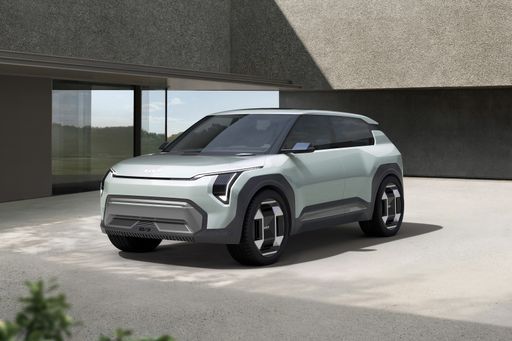
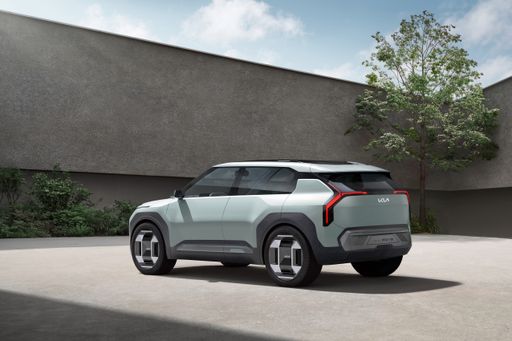
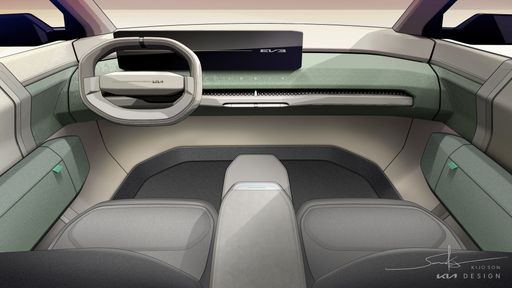
Toyota bZ4X
The Toyota bZ4X is a fresh, roomy electric crossover that pairs Toyota’s trademark reliability with bold, angular styling and a cabin designed for everyday comfort. It may not chase headlines like some flashier rivals, but for buyers who want sensible electric motoring with practical packaging and a relaxed, confident ride, it’s an easy, pleasant choice.
details
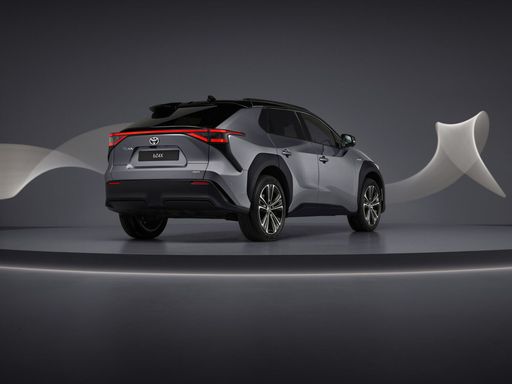
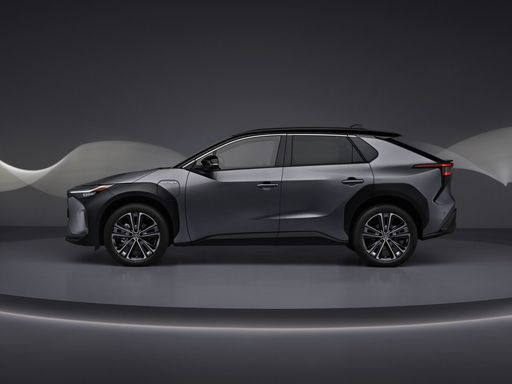
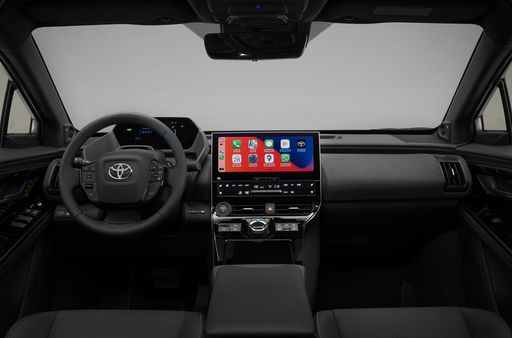
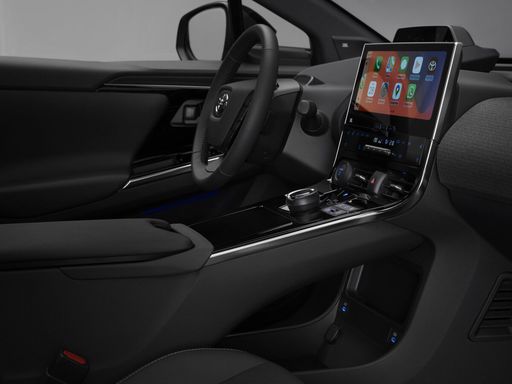
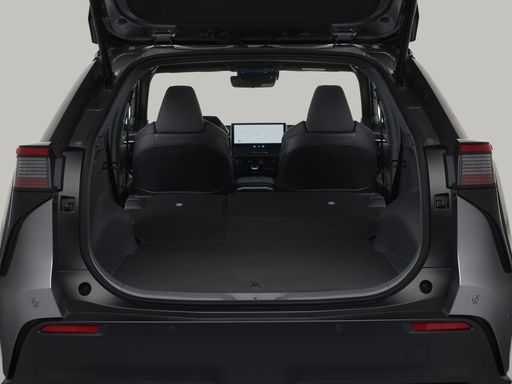
Costs and Consumption |
|
|---|---|
|
Price
30800 - 41700 £
|
Price
36800 - 48000 £
|
|
Consumption L/100km
-
|
Consumption L/100km
-
|
|
Consumption kWh/100km
14.9 - 16.2 kWh
|
Consumption kWh/100km
13.5 - 14.1 kWh
|
|
Electric Range
436 - 605 km
|
Electric Range
444 - 568 km
|
|
Battery Capacity
58.3 - 81.4 kWh
|
Battery Capacity
-
|
|
co2
0 g/km
|
co2
0 g/km
|
|
Fuel tank capacity
-
|
Fuel tank capacity
-
|
Dimensions and Body |
|
|---|---|
|
Body Type
SUV
|
Body Type
SUV
|
|
Seats
5
|
Seats
5
|
|
Doors
5
|
Doors
5
|
|
Curb weight
1800 - 1885 kg
|
Curb weight
2014 - 2180 kg
|
|
Trunk capacity
460 L
|
Trunk capacity
452 L
|
|
Length
4300 - 4310 mm
|
Length
4690 mm
|
|
Width
1850 mm
|
Width
1860 mm
|
|
Height
1560 - 1570 mm
|
Height
1650 mm
|
|
Max trunk capacity
1251 L
|
Max trunk capacity
-
|
|
Payload
470 kg
|
Payload
375 - 451 kg
|
Engine and Performance |
|
|---|---|
|
Engine Type
Electric
|
Engine Type
Electric
|
|
Transmission
Automatic
|
Transmission
Automatic
|
|
Transmission Detail
Reduction Gearbox
|
Transmission Detail
Reduction Gearbox
|
|
Drive Type
Front-Wheel Drive
|
Drive Type
Front-Wheel Drive, All-Wheel Drive
|
|
Power HP
204 HP
|
Power HP
167 - 343 HP
|
|
Acceleration 0-100km/h
7.5 - 7.9 s
|
Acceleration 0-100km/h
5.1 - 8.6 s
|
|
Max Speed
170 km/h
|
Max Speed
140 - 160 km/h
|
|
Torque
283 Nm
|
Torque
268 - 338 Nm
|
|
Number of Cylinders
-
|
Number of Cylinders
-
|
|
Power kW
150 kW
|
Power kW
123 - 252 kW
|
|
Engine capacity
-
|
Engine capacity
-
|
General |
|
|---|---|
|
Model Year
2024
|
Model Year
2025
|
|
CO2 Efficiency Class
A
|
CO2 Efficiency Class
A
|
|
Brand
Kia
|
Brand
Toyota
|
What drive types are available for the Kia EV3?
The Kia EV3 is offered with Front-Wheel Drive.




